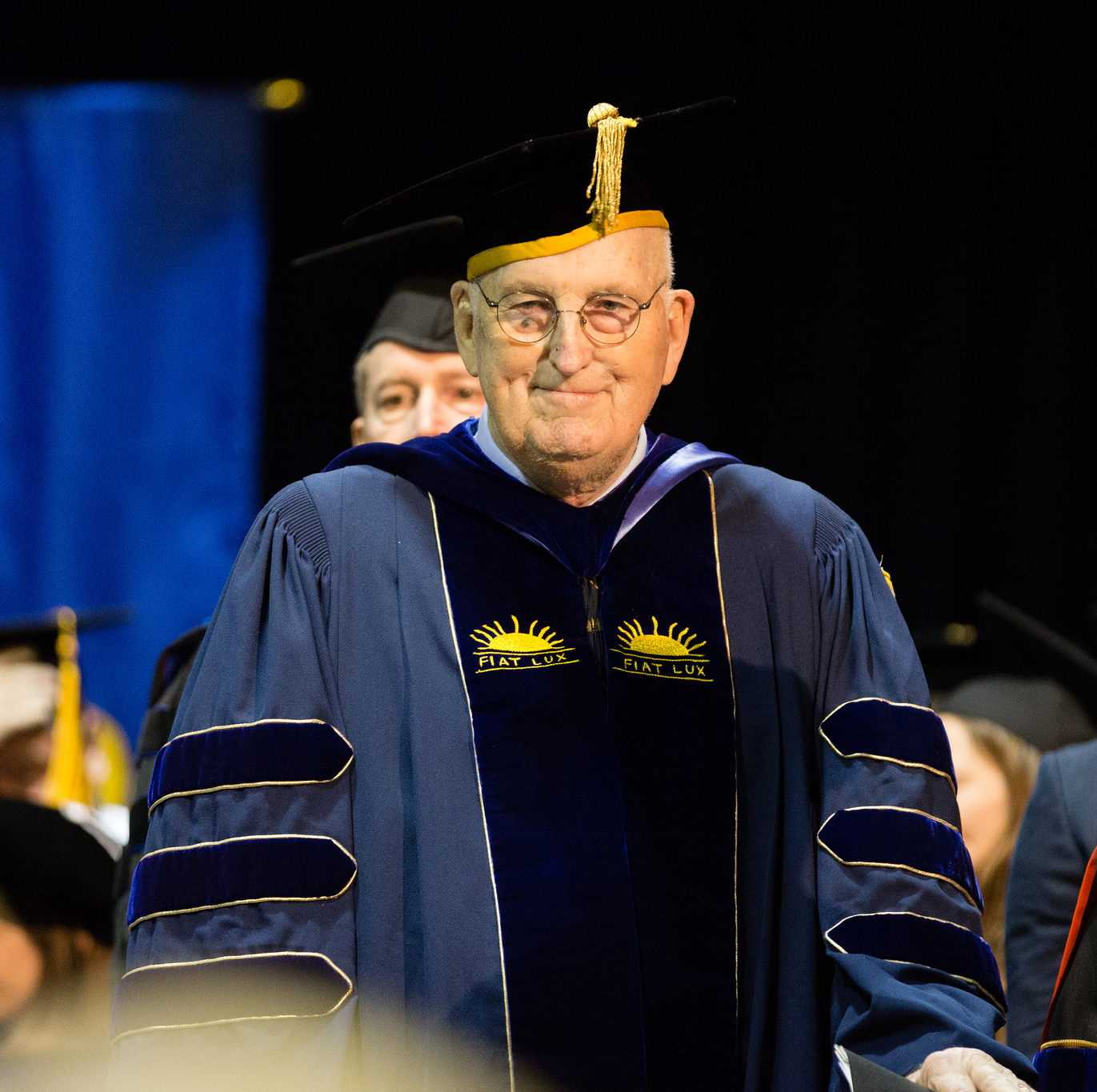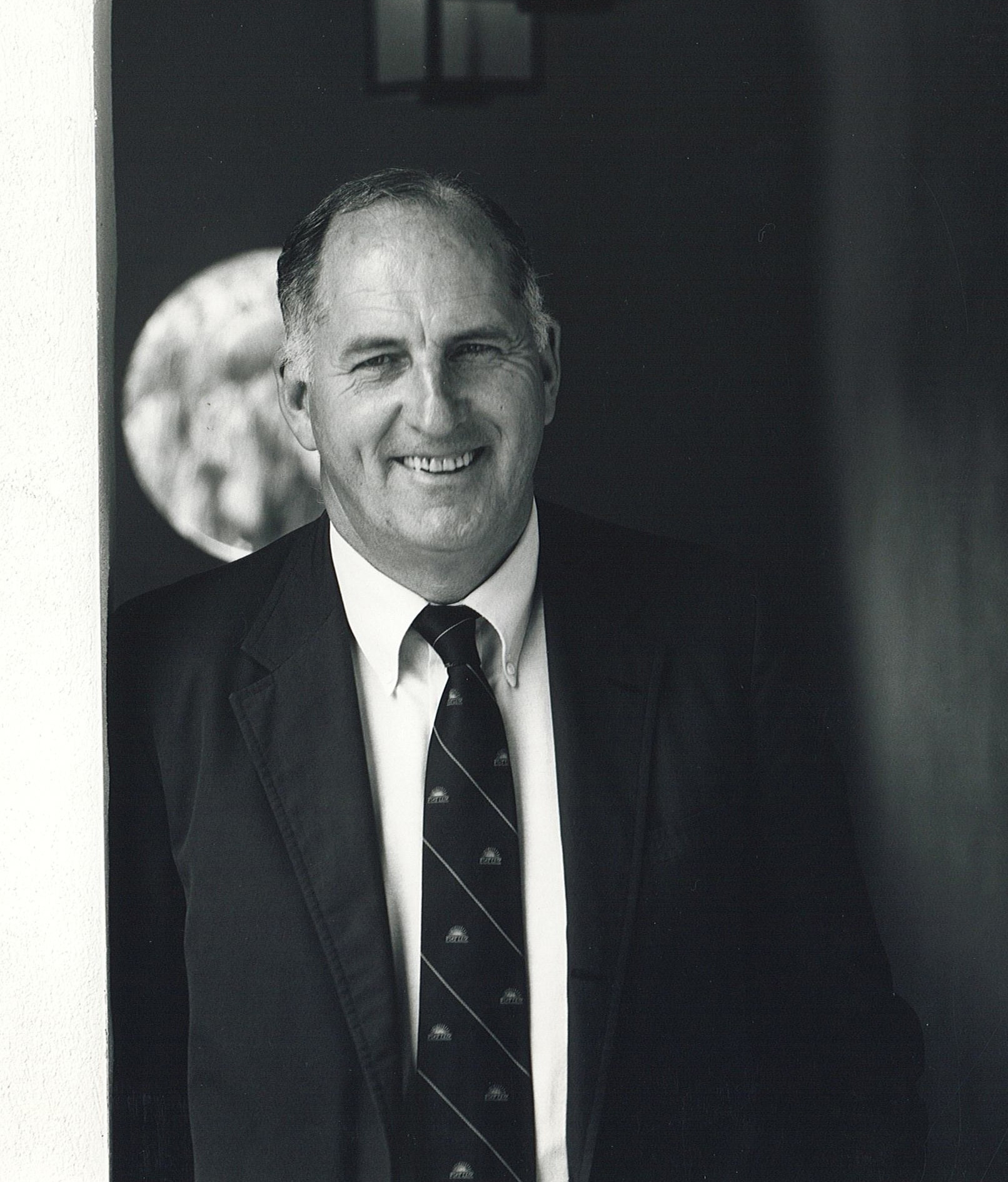
Thaddeus Seymour ‘82HAL ‘90H served as president of Rollins from 1978 to 1990. He began his presidency by setting a goal for the College’s 1985 Centennial: “To know ourselves and be known by others as the finest small college in the Southeast, standing among the finest small colleges in the country.” His administration returned the College to its liberal arts roots, strengthened academic programs, increased the endowment, and built a much-needed new library. He achieved these goals while also “matching hard work with fun,” and was well known as a storyteller and magician. He was also known for reinstating Fox Day, a College tradition that had been discontinued during the 1970s. “Thad” and his wife, Polly Gnagy Seymour ’85 ‘90H, also became beloved members of the local community, recognized for their service to the Winter Park Public Library, Habitat for Humanity, and many other local initiatives.
Thaddeus Seymour was born in New York City on June 29, 1928, and grew up in Greenwich Village. His father, Whitney North Seymour ‘83H, was an attorney and civil rights advocate who served in the Hoover administration and later became president of the American Bar Association. Thaddeus attended Princeton University and then the University of California, Berkeley. He earned a master’s degree and a Ph.D. from the University of North Carolina, where he studied eighteenth-century English literature.
Dr. Seymour began his career as an English professor at Dartmouth College in 1954 and became Dean of the College in 1959. Although he was a young man, he became known as “Dad Thad” at Dartmouth, where he served for another ten years. In 1969 he became the president of Wabash College in Indiana, a position he held for nine years before coming to Rollins.
One of President Seymour’s first acts at Rollins was to appoint a Planning Committee, chaired by philosophy professor Daniel DeNicola. The committee’s final 500-page report, developed over eighteen months, was to provide the framework for the College’s agenda during the next five years.
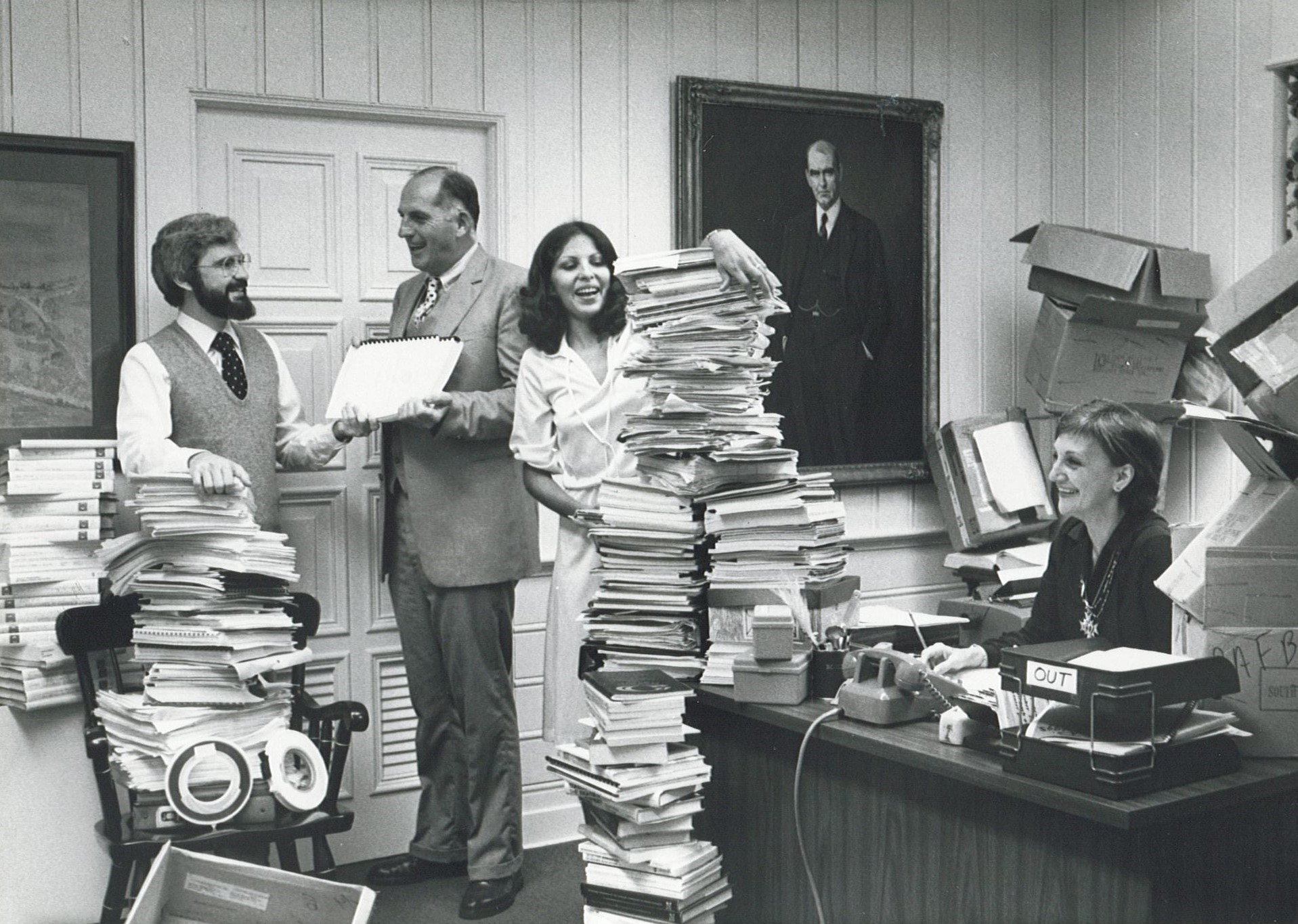
Prof. DeNicola, President Seymour, Administrative Specialist Marsha Clore, and Presidential Assistant Connie Riggs pictured with the work of the College Planning Committee, 1981
In the following years, Rollins renewed its focus on its liberal arts mission. A major in classics was established in the mid-1980s, and the Master of Liberal Studies program was introduced at the Hamilton Holt School in 1987.
President Seymour’s emphasis on academic excellence was essential to a number of other program changes at Rollins. The curriculum of the School of Continuing Education was revised, and the evening degree program was renamed the Hamilton Holt School. The Crummer Graduate School of Business received accreditation from the AACSB (The Association to Advance Collegiate Schools of Business) for the first time in 1985. By the end of the Seymour presidency, U.S. News & World Report recognized Rollins as one of the best regional institutions in the South.
The College became stronger financially as well as academically under President Seymour’s leadership. A five-year capital campaign raised $36.3 million for buildings, scholarships, equipment, and other initiatives. The College’s endowment had tripled to over $30 million by 1989.
Rollins was also transformed physically during these years. Two new buildings were constructed during the Seymour administration: Olin Library (1985) and the Cornell Hall for the Social Sciences (1988). President Seymour was dedicated to preserving historic campus spaces and oversaw a major renovation of Pinehurst Cottage, the College’s oldest building. He also rededicated the Walk of Fame, originally created by President Hamilton Holt in 1929.
After leaving the presidency in 1990, Dr. Seymour returned to teaching as a member of the English Department, where he created a new course, Writing About Rollins, in which students explored aspects of the College’s history. He also surprised and delighted the campus by becoming a master learner in the Science Community Year program in 1991, studying pre-calculus and biology alongside freshmen students. Math and science were not his strongest subjects, but as he put it, “I want to see if there’s still a tune left in the old violin.”
Thaddeus Seymour taught at Rollins until 2008, the year of his 80th birthday. These years fulfilled “a desire to serve my students well, to do justice to them, to teach as well as I can, have it be a rewarding experience for them and for me. . . you know, that’s what I hoped for when I started out to be a teacher. And then I say playfully to my colleagues, if you can figure out a way to replicate that in your career, what a wonderful time you’re going to have. And that’s what I’ve had.”
Throughout his career and retirement, he and his wife, Polly, were active members of the Winter Park community and served many local organizations. The Polly Seymour New Leaf Bookstore at the Winter Park Public Library and a Habitat for Humanity home dedicated to the Seymours are just two of the many ways the community showed its appreciation for their years of service. In 2016, the mayor of Winter Park proclaimed May 1 Thaddeus Seymour Day and presented the Seymours with a key to the city.
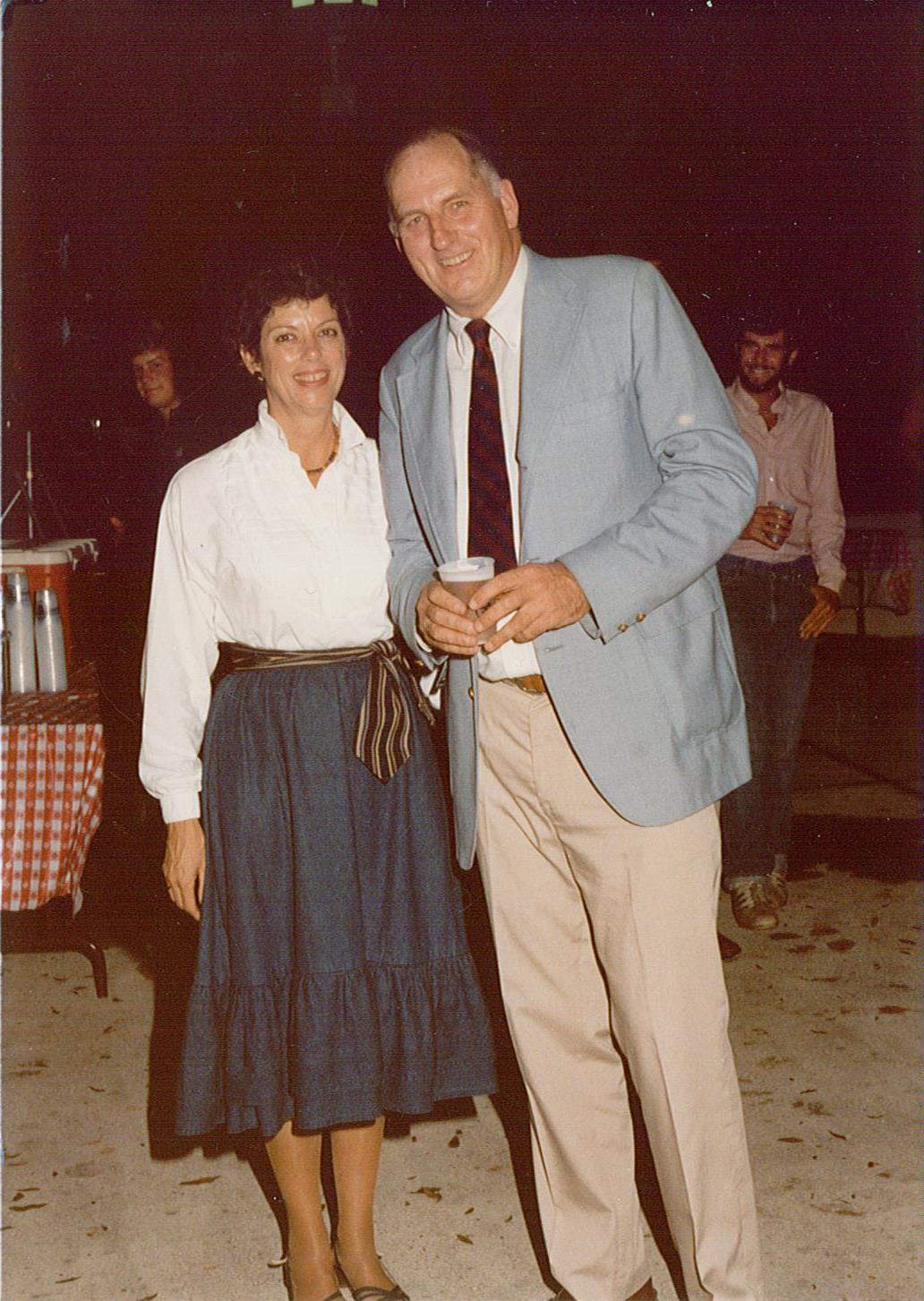
Polly and Thaddeus Seymour, 1982
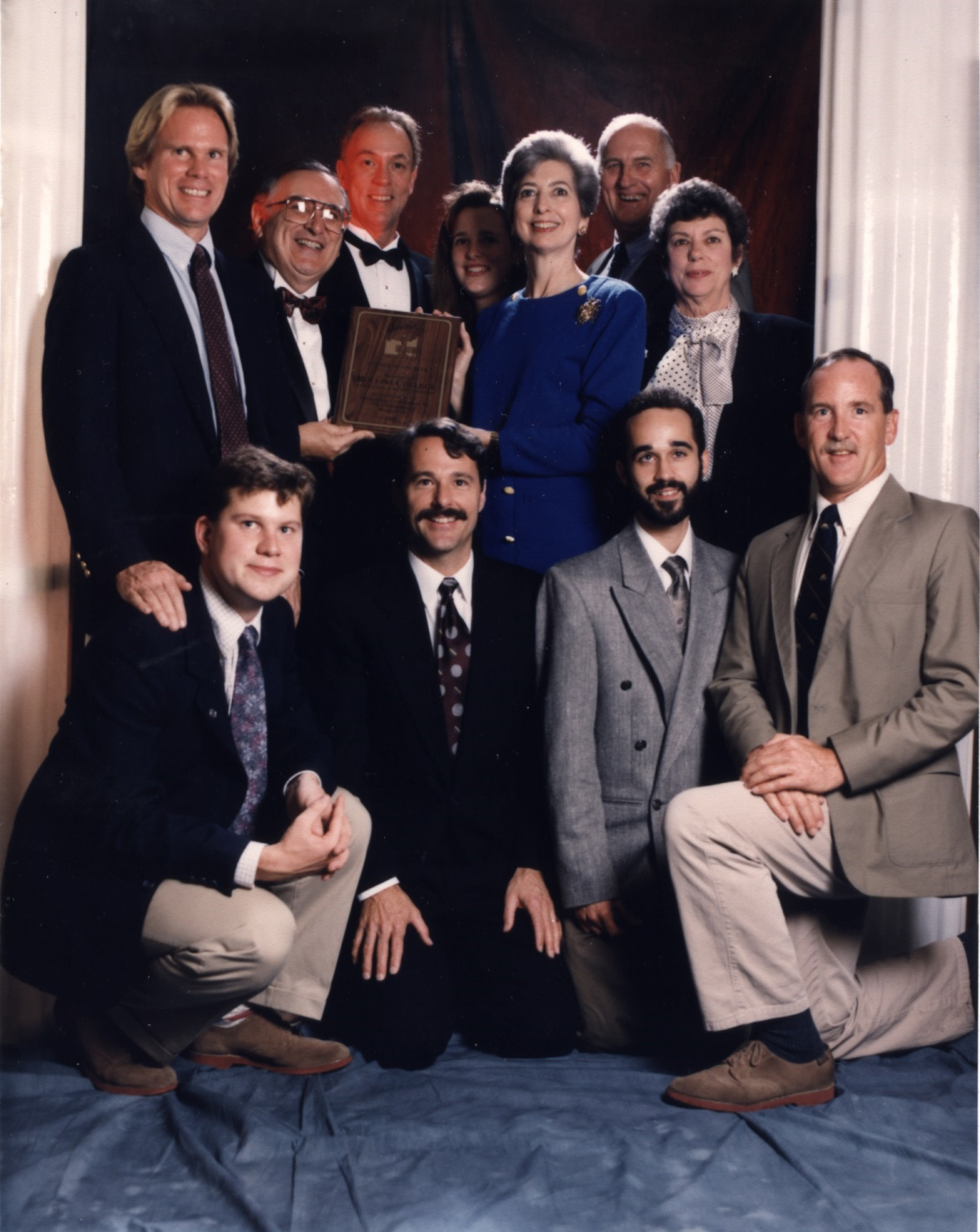
Thaddeus and Polly Seymour (standing, right) join President Rita Bornstein and other members of the community as Rollins is named Citizen of the Year for its work with Habitat for Humanity
In his book Rollins College Centennial History, College Historian Jack C. Lane noted that “The Seymour presidency proved to be a turning point in Rollins’ history. At a time when the college community was somewhat adrift, or at best standing still, Seymour instilled in the College a revived enthusiasm and provided a sense of continuity and gave it a new sense of direction.”
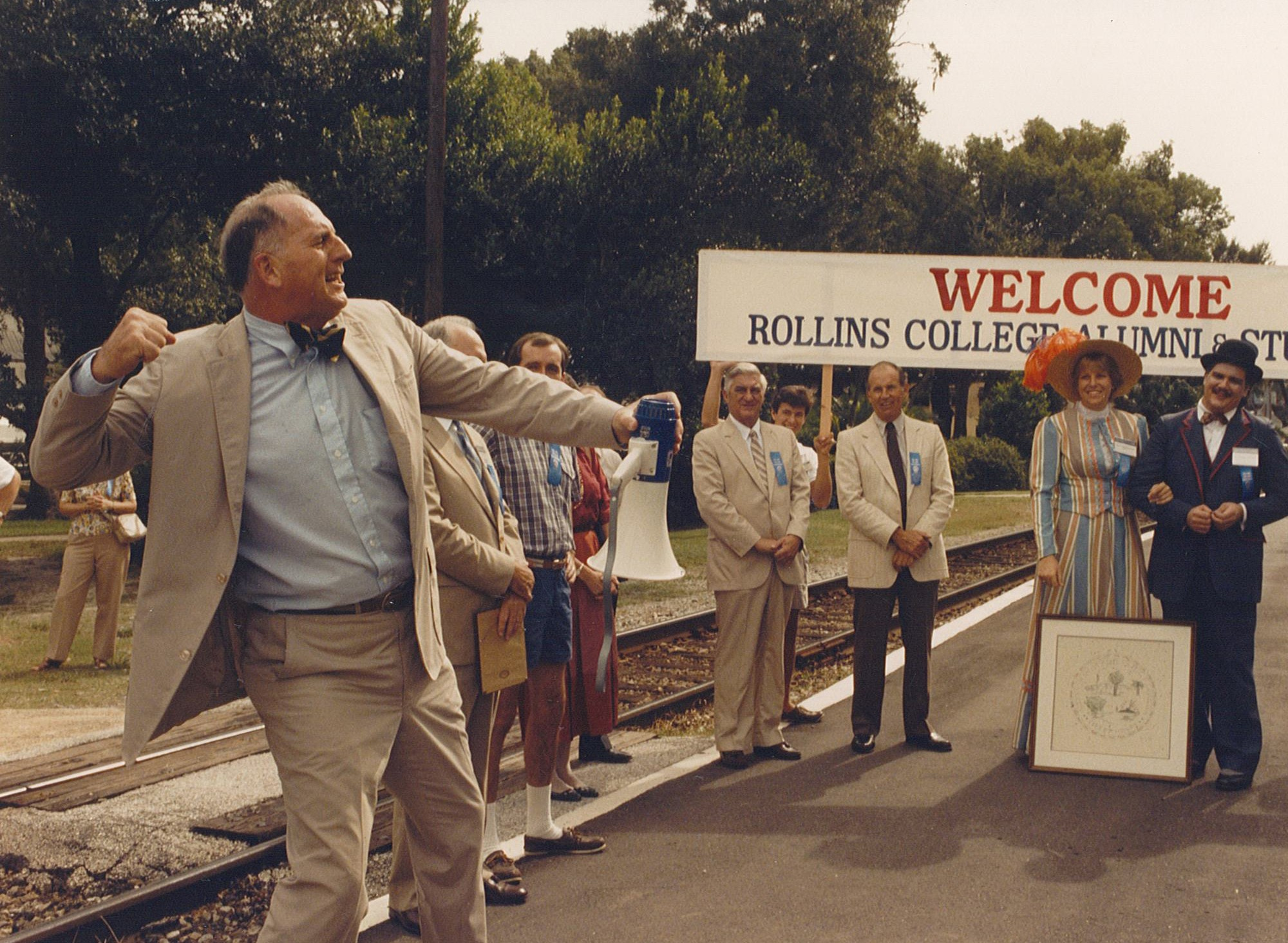
President Seymour leads a cheer at the College’s Centennial celebration, 1985
At Rollins, the Thaddeus Seymour Award for Community Engagement recognizes a staff member each year for exceptional community service, and a wing in the new Lakeside Neighborhood, with a focus on community, health, and well-being, will be named in honor of President Seymour.
